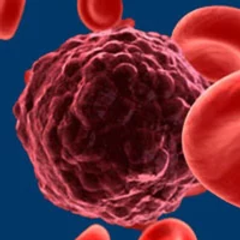
Dr. Ailawadhi on Patient Considerations for BTK Inhibitors in Waldenström Macroglobulinemia
Sikander Ailawadhi, MD, discusses patient considerations for BTK inhibitors in Waldenström macroglobulinemia.
Sikander Ailawadhi, MD, consultant, Division of Hematology/Oncology, Department of Internal Medicine, professor of medicine, Division of Hematology/Oncology, Departments of Medicine and Cancer Biology, Mayo Clinic, discusses patient considerations for BTK inhibitors in Waldenström macroglobulinemia.
The availability and cost of BTK inhibitors remain the most significant factors when deciding whether to give these therapies to patients with Waldenström macroglobulinemia, Ailawadhi says. However, not all patients require up-front BTK inhibition, Ailawadhi explains. As such, discussing multiple treatment options with patients and considering their preferences, disease factors, and adverse effects (AEs), as well as the potential benefits of the drug, is important to tailor therapy.
Currently, BTK inhibitors, such as ibrutinib (Imbruvica), are FDA approved for frontline use; however, utilizing second-generation BTK inhibitors in the up-front setting without FDA approval is not recommended, Ailawadhi says. As such, patients could start of frontline ibrutinib and then receive a second-generation agent after progression depending on AEs, tolerability, and availability, Ailawadhi concludes









































